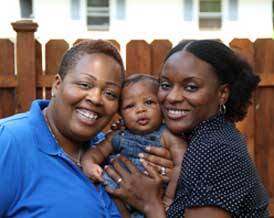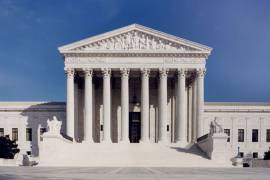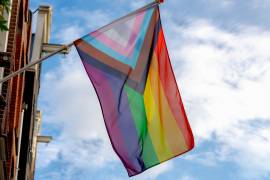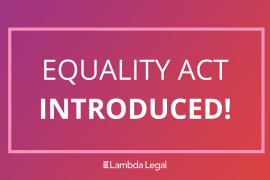
Listen Up, NOM: Racism and Homophobia Are Not Welcome in Our Communities
Blog Search
Cross-posted in the Huffington Post.
We have always known that the National Organization for Marriage (NOM) employs harmful tactics to oppose equality, but this week we learned that these tactics are not only homophobic but overtly racist. In a chilling and divisive memo, NOM laid out its bigoted "cultural strategies" to divide the struggle for marriage equality along racial lines by "influencing" people of color. NOM wants to "interrupt" Latino assimilation into American society and "drive a wedge between gays and blacks." The assumption underlying NOM's divide-and-conquer strategy is that people of color are already homophobic, or can be easily pushed there. This fundamental misunderstanding of people of color and the failure to appreciate the diversity within the LGBT community are deeply troubling not only for the LGBT movement but for communities of color.
NOM shows that it is completely out of touch with communities of color. It's absurd to paint so many distinct communities and constituencies with one brush. NOM doesn't understand that people of color can have different backgrounds, experiences, and political opinions. Our communities are not static or frozen in time. We have vibrant, complex, and evolving cultures, and the views expressed in our communities change over time in response to developments within and outside of them.
In NOM's distorted worldview, people of color view same-sex couples and families as strange or alien, but nothing could be further from the truth. Same-sex couples and families are an integral and increasingly visible part of African-American and Latino neighborhoods and communities across the country. This explains why there is widespread support for LGBT equality among Latinos: according to a 2011 report by the Movement Advancement Project (MAP), 80 percent of Latinos believe that gay people often face discrimination, 83 percent support housing and employment nondiscrimination protections for gay people, and 75 percent support school policies to prevent harassment and bullying of students who are gay or perceived to be gay. MAP also reports that the same trends are found among African-Americans: 87 percent agree that LGBT people face mistreatment that "leads to hate crimes, bullying in schools, and employment and housing discrimination."
As LGBT people of color, we live in the same neighborhoods and send our children to the same schools as straight people of color. And most importantly, we share similar family patterns and parenting trends as our larger communities. In a Jan. 18, 2011, New York Times article, reporter Sabrina Tavernise summarized U.S. Census data showing that black or Latino gay couples are twice as likely as whites to be raising children. In fact, according to a 2011 report by Gay Men's Health Crisis entitled Marriage Equality Would Most Benefit Black and Latino/a Same-Sex Couple Families, 54 percent of Latina lesbian couples, 52 percent of African-American lesbian couples, 41 percent of Latino gay couples, and 36 percent of black gay couples are raising children. These family patterns reflect the demographic and social trends in communities of color and demonstrate that family and parenting are equally important for all people of color regardless of sexual orientation. Indeed, our family ties and bonds are significant, and like straight people of color, we want to raise our children in nurturing, loving, and stable homes and thus have a high stake in marriage equality.
Let's be clear: the movement for LGBT equality does not compromise or delay the struggle for racial justice. Our society has the amazing capacity to embrace and empower all people regardless of their race, class, sexual orientation, or gender identity. The rich history of the struggles for equality in America shows that recognizing human rights will not break the bank. As Rev. Dr. Martin Luther King, Jr. eloquently said in the legendary "I Have a Dream" speech from the steps of the Lincoln Memorial, "we refuse to believe that the bank of justice is bankrupt. We refuse to believe that there are insufficient funds in the great vaults of opportunity of this nation." This is a powerful affirmation of American inclusiveness and opportunity. It was true in 1963, and it is still true today.
It also means that NOM is wrong: human rights and equality are never scarce. In America, when a community achieves equality, it is never at the cost of another; we make room for each other, and we march forward together leaving no one behind. Shame on NOM for targeting communities of color. I invite everyone to stand together in solidarity, and to work together to form a unified front in the struggle for justice and equality.




